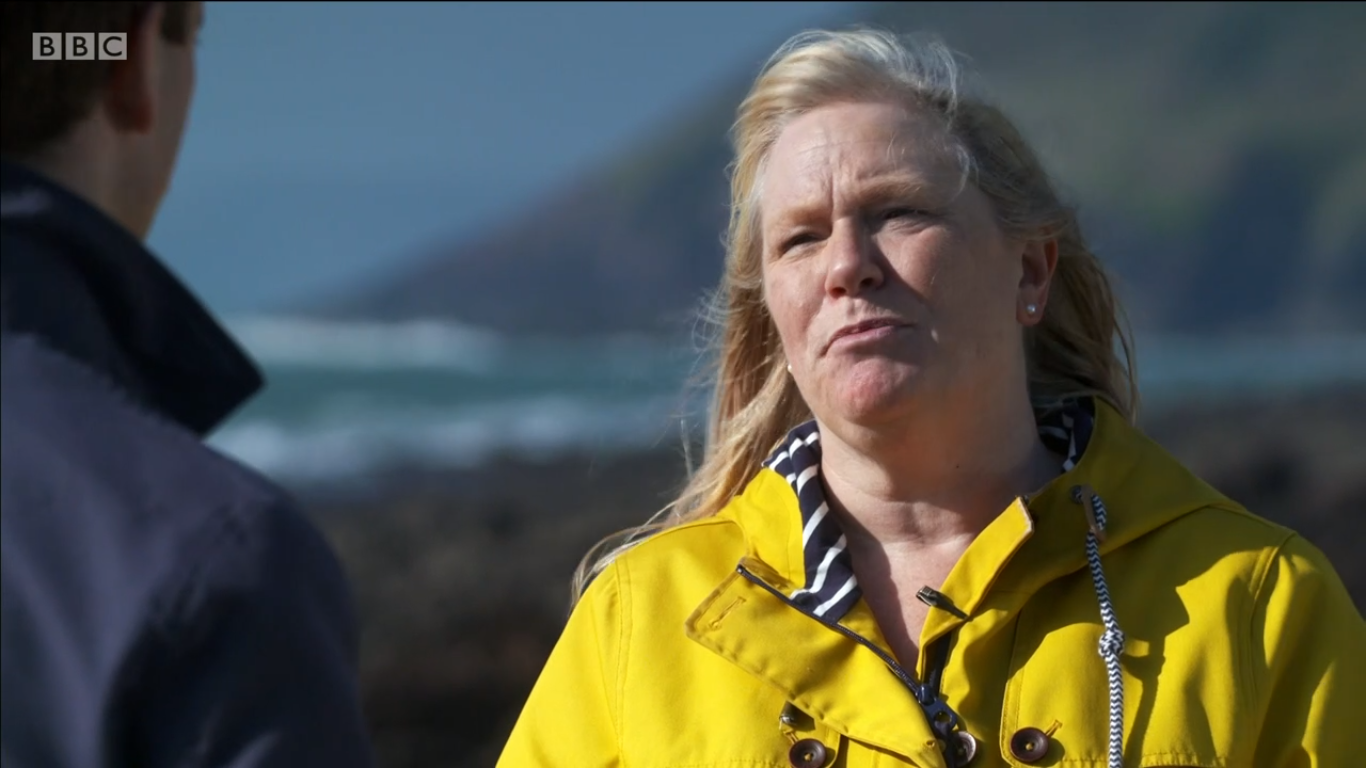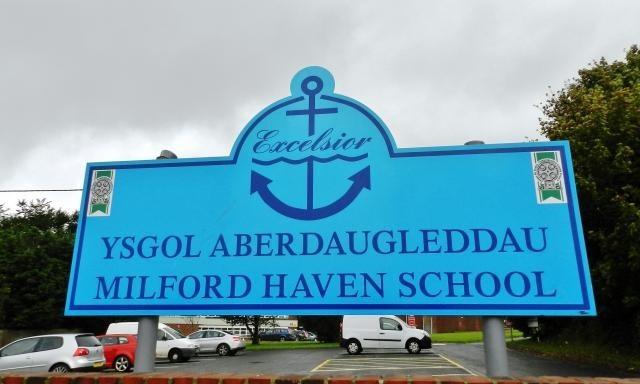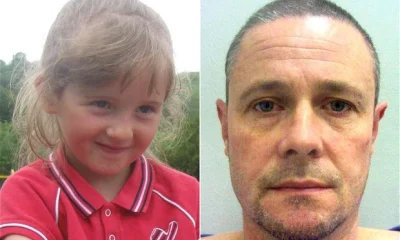News
Former NHS manager moving to England due to health care concerns

A FORMER senior NHS manager intends to move to England following failures in her husband’s treatment for prostate cancer.
Professor Siobhan McClelland, who lives in Manorbier and is a former Vice Chair of Aneurin Bevan Health Board, said: ‘There is neither capacity nor capability in Welsh Government to be making really good health policy.”
When it comes to health policy, Professor McClelland knows the subject well. She formerly held senior positions as a health economist and health manager. Her experiences of working within the Welsh NHS is substantial.
Apart from her experience on the Aneurin Bevan health board, she chaired the Welsh NHS’s emergency ambulance services committee.
Hywel Dda UHB acknowledges ‘shortcomings’ in Professor McClelland’s husband’s treatment.
Speaking to BBC Wales’ Wales Live programme broadcast on Wednesday (Oct 17) Prof McClelland outlined the successive difficulties in getting GP appointments, referrals for diagnosis, and the failure to spot the spread of her husband’s cancer.
She blamed those failings for making an already difficult situation worse.
Siobhan McClelland continued by observing there was ‘a massive disconnect’ between the experience of being a member of a Health Board or – as in her own experience – being Chair of the Emergency Ambulance Committee and the state of services being delivered to the public.
Prof McClelland told the BBC that she and her husband had lost confidence in the healthcare available and that was one of the reasons they placed their house on the market and were looking to move away from the area.
“We’ve got a fundamental problem here with health boards – not in terms of geographical boundary – but in the autonomous way in which they act.”
Professor McClelland’s most telling criticisms were of the way in which Health Boards lacked leadership from the Welsh Government and local accountability.
She told BBC Wales: “We have a void in Welsh Government where robust, rigorous, innovative health policy should be made.”
Her scorn for the Welsh Government’s ‘nothing to do with me, guv’ approach led straight to the door of current Health Secretary Vaughan Gething and his predecessor Mark Drakeford. Both Mr Gething and Prof Drakeford are candidates to lead the Labour Party in Wales and to succeed Carwyn Jones as First Minister.
Claiming that the current organisational setup was convenient for the Welsh Government as it ‘abdicated responsibility for health board services’, Siobhan McClelland said that both Mark Drakeford and Vaughan Gething ‘struggled to implement policy’.
In the Senedd, however, Vaughan Gething rejected Prof McClelland’s criticism out of hand.
Faced with Rhun ap Iorwerth’s assertion that the words of someone as respected as Professor McClelland were ‘about as damning an indictment as you could hear of your running of the Welsh health service’, Vaughan Gething said he did not accept the system-wide criticism that she makes of Welsh health services.
Pressed by Mr ap Iorwerth, Mr Gething sought refuge behind a Parliamentary Review and an OECD report which he claimed justified his response.
Plaid’s health spokesperson mordantly observed that ‘Professor McClelland has looked at the NHS in Wales and how it’s run probably more forensically than anybody else’ and repeated her criticism of a lack of central direction and asked whether the recently announced increase to the health and social care budget would simply be lost in Boards’ poor financial management.
Instead of answering his opposite number, Labour’s Health Minister suggested that Mr ap Iorwerth seemed to be suggesting a cut in health budgets and said: “I am content with the fact that we understand there are real challenges, and we’re not complacent about actually managing and meeting those.”
Having rubbished Professor McClelland’s substantive complaints about the Welsh Government’s mismanagement of the health service and repeating the line that they operated accountably, the Cabinet Secretary lauded the model for the delivery of social care that had been agreed with third sector bodies, local government and health boards.
Bearing in mind the content of most recent local government discussions on that vexed subject, the casual observer might wonder to which local authorities the Welsh Government had been speaking.
Equally, in highlighting the extent of central control and monitoring and by the way he addressed some of Rhun ap Iorwerth’s points, Vaughan Gething appears to have laid the way for future difficulties in claiming the planned cuts to health services by Hywel Dda UHB are nothing to do with him or the Government he wants to lead.
By claiming to have his hands on the levers of healthcare’s delivery, Mr Gething can hardly now claim they are clean when it comes to decisions about the future of West Wales’ health services.
Education
Leadership questions raised after Milford Haven school stabbing

Headteacher absent as council confirms support plan and oversight visits
CONCERNS have been raised about leadership and staffing at Milford Haven Comprehensive School following last week’s alleged stabbing of a teacher on site.
The Herald has been contacted by a member of teaching staff who described the school as “rudderless” in the days after the incident and questioned whether enough senior management support was in place.
The teacher, who asked not to be named, said staff morale had been affected and claimed there had been little direct communication from the headteacher, who has been absent due to injury.
They said: “We teachers are all saying the same thing. The school feels rudderless. This is a time when a leader needs to step up and let us know they’re still in charge and concerned.”
Concerns were also raised about administrative capacity, with the business manager role reportedly unfilled.
A spokesperson for Pembrokeshire County Council confirmed the current arrangements.
The council said headteacher Ms C. A. Morris remains in post but is currently absent, with deputy headteacher Mr Daryl John deputising.
It added that the business manager position is a matter for the school.
Additional support has been put in place for staff and pupils, including the Education Psychology team on site, access to counselling services and an increased presence from the School Police Liaison Officer throughout the week.
The authority also said the Director of Education is in daily contact with the deputy head.
In terms of oversight, the council confirmed Steven Richards-Downes, Director of Education, has visited the school 35 times and met staff on two occasions. Cllr Guy Woodham, Cabinet Member for Education and Welsh Language, has made eight visits since taking up the role in May 2019.
Last week’s incident saw a 15-year-old male charged grievous bodily harm with intent and possession of a bladed article.
At an initial hearing it was explained that the teacher, who was named as Vicky Williams, has since been discharged from hospital.
The prosecution explained to the court that the boy attacked Williams with a kitchen knife.
The case has been sent to Swansea Crown Court.
Community
Facebook ‘news’ site targeting Herald editor collapses after community backlash

Page disappears hours after offensive post sparks outrage across Pembrokeshire
A FACEBOOK page that presented itself as a local news outlet but repeatedly targeted The Pembrokeshire Herald and its editor has disappeared following a wave of public criticism from residents and charity workers.

The page, operating most recently under the name Clear Line News, published a lengthy post on Sunday (Feb 9) describing Pembrokeshire in highly offensive terms and mocking community groups, volunteers and local reporting.
Within hours, the post triggered widespread condemnation online.
By the end of the day, users reported the page had changed its name to “The Devil’s Feed” before becoming unavailable altogether.
Criticism arose after Marty Jones, PR manager for Sandy Bear Children’s Bereavement Charity, shared a screenshot of the post on his personal Facebook page and questioned its tone.
Dozens of residents replied, describing the language as “vile”, “nasty” and “beyond comprehension”.
Several said they had been blocked by the page after challenging it.
Others expressed particular anger at comments they said were directed towards a bereaved mother connected to a local fundraiser.
One commenter wrote: “How they can speak to a bereaved mother that way is beyond my comprehension.”
Name change and closure
As criticism mounted, users reported the page had been renamed before disappearing completely.
By Monday morning, it could no longer be accessed.
Earlier identity
The page’s history has also drawn scrutiny.
Before operating as Clear Line News, the account previously used the name “Dyfed-Powys Neighbourhood Watch”, presenting itself in a way that some residents believed suggested an official or community safety organisation.

A company using a similar name — GWARCHOD Y GYMDOGAETH DYFED-POWYS NEIGHBOURHOOD WATCH LIMITED — was incorporated on Nov 4, 2024, according to Companies House records.
The filing listed the director as Ajay Owen, recorded as “Lord Ajay Owen”, with a correspondence address in Llanfyrnach.
The company’s stated activities included public relations, communications and public order and safety functions.
Companies House records show the company was dissolved on Feb 18, 2025.
During the period when the page appeared to carry Neighbourhood Watch-style branding, it accumulated more than 1,000 followers, including engagement from public bodies such as Mid and West Wales Fire and Rescue Service.
After several rebrands, the page later emerged as Clear Line News in late 2025, adopting the look of a local news site.
Much of its content, however, focused on opinion pieces and attacks on local institutions and individuals.
Distancing statement
Following Sunday’s controversy, Mr Owen posted a statement saying he previously owned the page but no longer controlled it and had requested its removal.
Shortly afterwards, the account disappeared.
He told The Herald in December that he had sold the page for £10 within days of relaunching it under the new name. The purported new owner could not be contacted and no independent details confirming the transfer were provided.
Community response
While Pembrokeshire residents accept robust debate and scrutiny, many said they rejected what they saw as inflammatory or abusive social media content masquerading as journalism.
One resident wrote: “We should be grateful for where we live and try to make it better, not tear it down.”
Whether the page returns under another name remains unclear.
For now, it appears a site that set out to criticise the community ended up undone by that same community’s response.
Community
Nacro grant boosts neurodiverse support in Carmarthen

A £1,000 grant from Nacro is set to strengthen grassroots support for neurodivergent children, young people and adults across Carmarthenshire.
CANDO (Carmarthen Aberystwyth Neurodiverse Outreach Group) has secured the funding through the Connecting Carmarthenshire Preventative Service, enabling the volunteer-led organisation to expand its practical, person-centred work with local families.
Operating under the message “We see your future whatever the past”, CANDO supports people who often struggle to access the right help, feel heard, or find stability in everyday life. The new funding will increase capacity, provide resources for inclusive sessions, and improve access to early support for those who might otherwise slip through the net.

The group works closely with individuals and families to reduce barriers and build confidence — whether through education guidance, wellbeing support, advocacy, or help navigating local services. Leaders say the grant will allow them to respond more quickly to growing demand and keep sessions welcoming, accessible and consistent.
A CANDO spokesperson said: “This grant is amazing news for our community. Neurodivergent people can face extra pressures — from isolation and anxiety to difficulties being understood in education and services. This support will help us reach more people, provide practical help, and keep showing up for those who need someone on their side.”
Nacro’s wider mission mirrors that approach. The charity works across education, housing, justice, health and wellbeing, providing tailored support to help people build independence and move forward. Alongside frontline services, it also campaigns to remove systemic barriers and give disadvantaged people a stronger voice.
For CANDO, that bigger picture is felt locally. Families often face complicated pathways, long waits and fragmented services, and need clear guidance and community-based help that understands neurodiversity. By intervening early — before challenges escalate — the group believes it can improve mental health, education outcomes and overall wellbeing.
The £1,000 grant will fund additional outreach, materials and practical resources, helping more people feel safer, more confident and better equipped to move forward.
CANDO added: “We’re proud to work alongside Nacro’s vision of a society where everyone has the chance to succeed. This funding will do real good — right here in Carmarthen and beyond — and we’re grateful for the belief it shows in our community.”
-

 Health5 days ago
Health5 days agoHealth board targets rise in steroid and gym drug use across west Wales
-

 Crime6 days ago
Crime6 days agoSex offender jailed after living off grid in Pembrokeshire and refusing to register
-

 Crime5 days ago
Crime5 days agoTeacher injured and teenager arrested for attempted murder at Milford Haven School
-

 Business2 days ago
Business2 days agoComputer Solutions Wales under fire from customers
-

 Business4 days ago
Business4 days agoSix-figure negligence victory leaves retired builder trapped in divorce limbo
-

 Crime7 days ago
Crime7 days agoJohnston man remanded in custody over knife and assault charges
-

 News6 days ago
News6 days agoReform appoints Dan Thomas to lead party in Wales
-

 Crime7 days ago
Crime7 days agoProvisional licence holder admits drink-driving through town centre






































